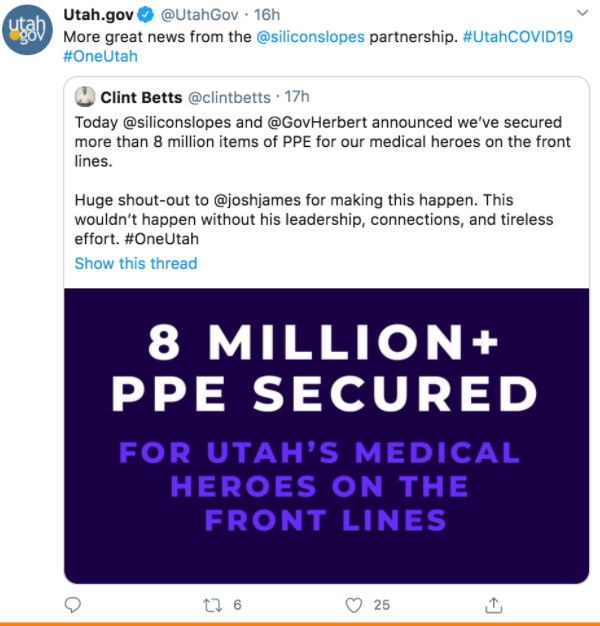Gratitude might seem simple, but it’s a quiet strength that can transform your leadership. By leading with gratitude, you can create a team culture where people feel valued and motivated to do their best. Whether it’s recognizing hard work or celebrating small wins, showing appreciation reminds everyone their contributions matter.
Practicing gratitude can help you as a leader, as well. Leadership is full of challenges—tight deadlines, setbacks, and tough calls. Practicing gratitude helps shift your focus from obstacles to progress, effort, and opportunities to grow.
In this post, we’ll explore how leaders use gratitude to strengthen relationships, spark creativity, and build thriving teams. Whether you’re launching a startup or scaling a company, gratitude could be the key to unlocking new possibilities for your team—and yourself.
18 Practical Ways Gratitude Transforms Leadership and Team Culture
1. Gratitude Shapes Teams and Strengthens Leadership Styles
 Gratitude is something I carry with me in every aspect of my life. It’s something I’m always mindful of and a practice I consistently want to grow in. When it comes to leadership, I think it’s important to create a sense of gratitude within your team and organization as a whole. Being a part of teams that share in this approach has really shaped my leadership style. Gratitude is similar to positivity in that it’s contagious. Reinforce this by celebrating small wins, encouraging learning, and showing authentic appreciation.
Gratitude is something I carry with me in every aspect of my life. It’s something I’m always mindful of and a practice I consistently want to grow in. When it comes to leadership, I think it’s important to create a sense of gratitude within your team and organization as a whole. Being a part of teams that share in this approach has really shaped my leadership style. Gratitude is similar to positivity in that it’s contagious. Reinforce this by celebrating small wins, encouraging learning, and showing authentic appreciation.
Casey Bolsega, Sr. Portfolio Manager, Intrepid
2. Focus on People and Processes Over Outcomes
 Gratitude has fundamentally transformed the way I lead by shifting my focus from outcomes to the people and processes that make them possible. In an innovation-driven environment, where change is constant and challenges are frequent, expressing gratitude fosters a culture of trust and resilience.
Gratitude has fundamentally transformed the way I lead by shifting my focus from outcomes to the people and processes that make them possible. In an innovation-driven environment, where change is constant and challenges are frequent, expressing gratitude fosters a culture of trust and resilience.
Recognizing the contributions of my team… whether it’s a bold idea, a solved problem, or simply showing up fully… reminds them (and me) that their work matters.
Gratitude is a leadership strategy that inspires collaboration, loyalty, and a collective drive to innovate, knowing that every effort is valued.
Tara Furiani, CEO, Not the HR Lady
3. Gratitude Brings Meaning to Every Small Victory
 Everybody needs a win and in most cases we are all already winning. Gratitude helps us remember that. With that perspective, we can better enjoy the process and each other’s company in the now instead of regret of the past or anxiety of the future. It’s helped me enjoy the small things, as a collection can be far bigger and more meaningful in our short lifespan.
Everybody needs a win and in most cases we are all already winning. Gratitude helps us remember that. With that perspective, we can better enjoy the process and each other’s company in the now instead of regret of the past or anxiety of the future. It’s helped me enjoy the small things, as a collection can be far bigger and more meaningful in our short lifespan.
Andrew Nguyen, Fractional Product Executive, Onwards Up
4. Recognize Contributions to Foster Innovation
 Gratitude has been a cornerstone of my leadership style, and it’s not just about saying “thank you”-it’s about truly recognizing the contributions and potential of others. Early in my career, I realized that fostering innovation isn’t just about creating processes or strategies; it’s about creating an environment where people feel seen, valued, and empowered to take risks. When you genuinely show gratitude for someone’s efforts, it builds trust and opens the door for collaboration and creativity.
Gratitude has been a cornerstone of my leadership style, and it’s not just about saying “thank you”-it’s about truly recognizing the contributions and potential of others. Early in my career, I realized that fostering innovation isn’t just about creating processes or strategies; it’s about creating an environment where people feel seen, valued, and empowered to take risks. When you genuinely show gratitude for someone’s efforts, it builds trust and opens the door for collaboration and creativity.
At HRDQ, gratitude shows up in how I engage with my team and the learning professionals we serve. I’ve found that acknowledging the results and the effort and thought behind them has a multiplying effect. It encourages people to bring their full selves to their work. For instance, when a team member brings a fresh idea, even if it’s not fully formed, expressing gratitude for their initiative often sparks further innovation. People are more willing to share and refine ideas when they know their contributions are appreciated.
Gratitude also helps me stay grounded as a leader. In a fast-moving, innovation-driven environment, it’s easy to get swept up in the pace and focus solely on the next big thing. Practicing gratitude reminds me to pause and appreciate the journey-the growth of my team, the trust of our clients, and the impact we’re making. It’s not just good for morale; it’s good for business. When gratitude is authentic and part of your leadership DNA, it creates a culture of positivity and possibility, where people are motivated to do their best work because they feel respected and inspired. That’s the kind of environment where true innovation thrives.
Bradford Glaser, President & CEO, HRDQ
5. Gratitude Builds Trust and Loyalty Across Your Team
 Gratitude – which often involves vulnerability – enables me to be a relatable leader with my teams, cross-functionally, and externally. It takes 2-seconds to say thank you. It might take a little longer to express WHY you are thankful for them, their contribution, etc – but that extra time shows them they are seen, they are valued. It builds trust and genuine loyalty in teams.
Gratitude – which often involves vulnerability – enables me to be a relatable leader with my teams, cross-functionally, and externally. It takes 2-seconds to say thank you. It might take a little longer to express WHY you are thankful for them, their contribution, etc – but that extra time shows them they are seen, they are valued. It builds trust and genuine loyalty in teams.
Emily Myers, Senior Vice President, Customer Success, TextUs
6. Specific Gratitude Sparks Unexpected Contributions
 Gratitude has this sneaky way of reshaping everything, especially leadership. For me, it’s not just about saying “thanks” at the end of a meeting but being specific and real. I remember one time when a junior team member stayed late for weeks trying to crack a tough client problem. Instead of the usual generic acknowledgment in front of the team, I took five minutes to write a personal note. I called out exactly what impressed me – their persistence and the creative way they tackled the issue. Here’s the surprising part: that small act sparked something. A week later, they came to me with a completely unrelated idea – a way to streamline our onboarding process. They said, “I figured if you noticed that, maybe this is worth sharing too.” And it was. That one tweak ended up saving us hours per new hire. Gratitude creates ripples you don’t expect. It’s not just about recognizing effort but it’s about showing people that what they do matters, that their unique perspective has a place. And when people feel valued, they start contributing in ways that can surprise you. It doesn’t have to be polished or perfect at all. Sometimes, just being authentic is what opens the door to innovation.
Gratitude has this sneaky way of reshaping everything, especially leadership. For me, it’s not just about saying “thanks” at the end of a meeting but being specific and real. I remember one time when a junior team member stayed late for weeks trying to crack a tough client problem. Instead of the usual generic acknowledgment in front of the team, I took five minutes to write a personal note. I called out exactly what impressed me – their persistence and the creative way they tackled the issue. Here’s the surprising part: that small act sparked something. A week later, they came to me with a completely unrelated idea – a way to streamline our onboarding process. They said, “I figured if you noticed that, maybe this is worth sharing too.” And it was. That one tweak ended up saving us hours per new hire. Gratitude creates ripples you don’t expect. It’s not just about recognizing effort but it’s about showing people that what they do matters, that their unique perspective has a place. And when people feel valued, they start contributing in ways that can surprise you. It doesn’t have to be polished or perfect at all. Sometimes, just being authentic is what opens the door to innovation.
Scott Cohen, CEO, InboxArmy
7. Gratitude Overpowers Negativity and Fuels Better Leadership
 It is neurologically impossible to experience a positive and a negative thought at the same time. (Give it a goog!) Leadership is rife with negative emotions – imposter syndrome, decision fatigue, burnout, doubt, fear of failure… to name just a few. In the moments where these feelings surface for me – and they certainly do – gratitude is the quickest path back to my naturally optimistic self. It is gratitude that helps me show up for my team, my customers, my family, my friends, and my community. Leadership is not easy. Gratitude makes it possible.
It is neurologically impossible to experience a positive and a negative thought at the same time. (Give it a goog!) Leadership is rife with negative emotions – imposter syndrome, decision fatigue, burnout, doubt, fear of failure… to name just a few. In the moments where these feelings surface for me – and they certainly do – gratitude is the quickest path back to my naturally optimistic self. It is gratitude that helps me show up for my team, my customers, my family, my friends, and my community. Leadership is not easy. Gratitude makes it possible.
Robin Lanning, VP of Sales & Marketing, Tactive
8. Gratitude Boosts Morale and Collaboration
 Gratitude has greatly shaped my leadership style, encouraging me to foster a work environment where appreciation is central to our culture. I make a point to acknowledge the contributions of each team member, which boosts morale and strengthens collaboration. Recognizing the hard work of others helps build trust, and it motivates everyone to push forward, especially in a high-pressure industry like cybersecurity. This approach not only drives performance but also enhances creativity and innovation within the team.
Gratitude has greatly shaped my leadership style, encouraging me to foster a work environment where appreciation is central to our culture. I make a point to acknowledge the contributions of each team member, which boosts morale and strengthens collaboration. Recognizing the hard work of others helps build trust, and it motivates everyone to push forward, especially in a high-pressure industry like cybersecurity. This approach not only drives performance but also enhances creativity and innovation within the team.
In the healthcare cybersecurity sector, where protecting sensitive patient data is vital, gratitude plays a crucial role. I ensure that our team understands the importance of their work and how it contributes to the safety of healthcare organizations. Showing appreciation helps create stronger relationships with our partners and clients, fostering trust and reinforcing our commitment to delivering reliable, secure solutions. Leading with gratitude helps maintain focus on the bigger picture and encourages continuous improvement in the face of evolving cyber threats.
Christian Espinosa, Founder and CEO, Blue Goat Cyber
9. Gratitude Strengthens Teams and Boosts Your Leadership
 Everyone likes to feel appreciated and valued. Managers that are not making a conscious effort to express gratitude for their employees and colleagues are missing out on one of the easiest and best ways to build a strong team. And, something I’ve found about gratitude is that expressing thanks for someone else, also has a positive benefit on you. You can’t help feeling good yourself when you express gratitude for someone else.
Everyone likes to feel appreciated and valued. Managers that are not making a conscious effort to express gratitude for their employees and colleagues are missing out on one of the easiest and best ways to build a strong team. And, something I’ve found about gratitude is that expressing thanks for someone else, also has a positive benefit on you. You can’t help feeling good yourself when you express gratitude for someone else.
Jeff Erickson, Strategic Partnerships, Forecastr
10. Gratitude Enhances Employee Well-Being
 Gratitude has deeply influenced my leadership style, particularly in terms of supporting the overall well-being of my employees. I’ve learned that expressing genuine appreciation not only boosts morale but also has a profound impact on mental and emotional health. When employees feel recognized and valued, they experience a greater sense of purpose and fulfillment in their roles.
Gratitude has deeply influenced my leadership style, particularly in terms of supporting the overall well-being of my employees. I’ve learned that expressing genuine appreciation not only boosts morale but also has a profound impact on mental and emotional health. When employees feel recognized and valued, they experience a greater sense of purpose and fulfillment in their roles.
This creates a positive cycle where employees are more motivated and engaged, leading to improved productivity and job satisfaction. I make it a priority to acknowledge both their individual and collective efforts, reinforcing the idea that their well-being matters.
This practice goes beyond just thanking them for their work; it’s about creating a culture where employees feel cared for and supported. Fostering an environment rooted in gratitude, I’ve seen firsthand how it improves employee well-being, enhances team collaboration, and strengthens our company as a whole.
Ben Wieder, CEO, Level 6 Incentives
11. See the Best in Others by Practicing Gratitude
 Gratitude makes it easier to consistently see the human rather than what the human can do for you. Gratitude prompts us all as leaders to focus on the very best of each person around us, which provides valuable perspective and focus on what matters most.
Gratitude makes it easier to consistently see the human rather than what the human can do for you. Gratitude prompts us all as leaders to focus on the very best of each person around us, which provides valuable perspective and focus on what matters most.
Karen Mangia, President & Chief Strategy Officer, The Engineered Innovation Group
12. Personalized Gratitude Strengthens Team Dynamics
 Taking the time to show gratitude in a personalized way—like recognizing specific efforts or skills—has helped me connect with my team on a deeper level. When I acknowledge individual contributions, it makes each person feel valued for their unique strengths. This personal touch boosts morale and creates a sense of belonging. It fosters a supportive environment where open communication and collaboration thrive. Because of this, the team feels more motivated and committed to our shared goals. The trust built through this personalized gratitude has strengthened our team dynamic and productivity.
Taking the time to show gratitude in a personalized way—like recognizing specific efforts or skills—has helped me connect with my team on a deeper level. When I acknowledge individual contributions, it makes each person feel valued for their unique strengths. This personal touch boosts morale and creates a sense of belonging. It fosters a supportive environment where open communication and collaboration thrive. Because of this, the team feels more motivated and committed to our shared goals. The trust built through this personalized gratitude has strengthened our team dynamic and productivity.
Rodger Desai, CEO, Prove
13. Gratitude Creates Fulfillment and Resilience
 Anyone who practices gratitude knows how powerful it can be. It’s almost like it ripples through you into the lives of others. A word of encouragement, a push in the right direction, even a simple shout-out, all of it leaves your team feeling more fulfilled than before. I’ve gotten to witness this time and time again which only strengthens my resolve.
Anyone who practices gratitude knows how powerful it can be. It’s almost like it ripples through you into the lives of others. A word of encouragement, a push in the right direction, even a simple shout-out, all of it leaves your team feeling more fulfilled than before. I’ve gotten to witness this time and time again which only strengthens my resolve.
The biggest example of this was during COVID-19 where, like most businesses, we also had to shut down for some time. But behind the scenes, we were brainstorming on some promising ideas and I remember I kept reaffirming to my team how grateful I was for them. For their resilience, for their perseverance, their ideas – all of it. That’s when we pivoted our entire operation to manufacture foam components for face shields and other PPE. It was a wild ride, but seeing the team rally around this new mission was incredible.
Mike Handelsman, CEO & Owner, FoamOrder
14. Gratitude Reflects Team’s Hard Work
 Recognizing my team’s contributions always reminds me that my success is really a reflection of their hard work. It keeps me humble and focused on leading with respect for everyone’s contributions. Showing appreciation regularly helps create a positive, inclusive culture where collaboration thrives, and everyone feels empowered to pitch in. This leads to a stronger team spirit where we all take pride in our shared wins.
Recognizing my team’s contributions always reminds me that my success is really a reflection of their hard work. It keeps me humble and focused on leading with respect for everyone’s contributions. Showing appreciation regularly helps create a positive, inclusive culture where collaboration thrives, and everyone feels empowered to pitch in. This leads to a stronger team spirit where we all take pride in our shared wins.
Nick Esposito, Founder, NYCServers
15. Celebrate Small Wins for Big Impact

There was a time when we were rolling out a complex PPC campaign for a new client. It was one of those projects where every step required precision, from keyword research to ad copy testing. During a team meeting, one of our analysts shared a small optimization that reduced the cost-per-click by 3%. It wasn’t a dramatic result on its own, but I made sure to highlight their effort and how that change set the tone for scaling the campaign. That small adjustment snowballed into a much larger impact, but the key moment was taking the time to recognize it early.
Gratitude in these moments does more than just boost morale. It shows that every effort, no matter how small, is seen and valued. It creates a culture where people feel confident experimenting and sharing their ideas, which is essential in an innovation-driven company. Gratitude has helped me build an environment where even the small contributions are celebrated, and that’s where growth happens.
Mushfiq Sarker, Chief Executive Officer, LaGrande Marketing
16. Recognize Contributions to Foster Creativity
 As President of an innovation-driven recruiting firm specializing in executive placements, one way that gratitude has shaped my leadership style is by fostering a culture of recognition and appreciation within my team and network. I believe that acknowledging each individual’s contribution creates an environment where people not only feel valued and motivated but also empowered to express their creativity.
As President of an innovation-driven recruiting firm specializing in executive placements, one way that gratitude has shaped my leadership style is by fostering a culture of recognition and appreciation within my team and network. I believe that acknowledging each individual’s contribution creates an environment where people not only feel valued and motivated but also empowered to express their creativity.
I make it a priority to recognize the efforts of my team, clients, and candidates, reinforcing that their work is meaningful. For example, after successfully placing an executive in a leadership role, I personally thank everyone involved-whether it’s the recruiter who identified the candidate, the client who provided crucial feedback, or the candidate who trusted us with their career transition. This acknowledgment is more than just polite-it significantly boosts morale and nurtures a sense of shared purpose.
This gratitude-driven approach has had a profound impact on our team dynamics. It has fostered an atmosphere of mutual respect, which is essential in an industry where relationships and trust are at the core of success. When team members and collaborators feel appreciated, they are more motivated to go the extra mile, which leads to better outcomes for our clients and candidates-and drives innovation throughout our work.
Jim Hickey, President, Perpetual Talent Solutions
17. Appreciate Daily Efforts in AI Development
 For me, gratitude has fundamentally reshaped how I view and interact with my teams developing AI agents for healthcare organizations and systems. It’s shifted my focus from solely celebrating milestones to truly appreciating the daily effort, the countless iterations, and the intellectual curiosity that fuels our innovation. In the fast-paced world of AI, where breakthroughs are often incremental, it’s easy to get caught up in the pursuit of the next big thing. However, expressing gratitude for the ‘small wins’ – a clever algorithm tweak, a particularly insightful data analysis, or a well-crafted line of code – reinforces the value of each contribution. This, in turn, fosters a culture of psychological safety, where team members feel comfortable taking risks, experimenting, and even failing, knowing their efforts are seen and appreciated. This is especially crucial in AI development. We’re essentially building intelligent partners, and that requires a tremendous amount of collaborative exploration. By cultivating a culture of gratitude, we not only boost morale but also unlock a greater potential for creativity and problem-solving. It reminds us that behind every line of code, every neural network, there are dedicated individuals pouring their hearts and minds into pushing the boundaries of what’s possible in healthIT. And that, in itself, is something to be deeply grateful for.
For me, gratitude has fundamentally reshaped how I view and interact with my teams developing AI agents for healthcare organizations and systems. It’s shifted my focus from solely celebrating milestones to truly appreciating the daily effort, the countless iterations, and the intellectual curiosity that fuels our innovation. In the fast-paced world of AI, where breakthroughs are often incremental, it’s easy to get caught up in the pursuit of the next big thing. However, expressing gratitude for the ‘small wins’ – a clever algorithm tweak, a particularly insightful data analysis, or a well-crafted line of code – reinforces the value of each contribution. This, in turn, fosters a culture of psychological safety, where team members feel comfortable taking risks, experimenting, and even failing, knowing their efforts are seen and appreciated. This is especially crucial in AI development. We’re essentially building intelligent partners, and that requires a tremendous amount of collaborative exploration. By cultivating a culture of gratitude, we not only boost morale but also unlock a greater potential for creativity and problem-solving. It reminds us that behind every line of code, every neural network, there are dedicated individuals pouring their hearts and minds into pushing the boundaries of what’s possible in healthIT. And that, in itself, is something to be deeply grateful for.
Howard Rosen, CEO, Nova Insights
18. Gratitude Calms and Unlocks Fresh Perspectives
 Most strong executive leaders know the cost of being too emotional and have practices to keep their ego regulated. Gratitude is one of those practices. It is the mind’s way of taking a hard stop on a problematic feeling and holding space for kindness to self and others. It is a mindset and a self-management tool. As a practice, gratitude conditions the mind to be gentle with itself. You cannot be angry, frustrated, disappointed, anxious, jealous, or sad while you are scanning the environment for something to appreciate.
Most strong executive leaders know the cost of being too emotional and have practices to keep their ego regulated. Gratitude is one of those practices. It is the mind’s way of taking a hard stop on a problematic feeling and holding space for kindness to self and others. It is a mindset and a self-management tool. As a practice, gratitude conditions the mind to be gentle with itself. You cannot be angry, frustrated, disappointed, anxious, jealous, or sad while you are scanning the environment for something to appreciate.
Gratitude calms your mind, body, and presence, essential for top leaders to maintain composure, think clearly, and innovate. The body relaxes and the tightness opens to unlock a fresh perspective. The practice of gratitude grows your self-awareness of how you are feeling, your ability to regulate difficult feelings, and your capacity to shift your attention from negativity to celebration. Just a small shift in outlook for a leader can affect their team, strategic planning, relationships, family, happiness, and finances. If you cannot manage yourself well, you won’t be your best at managing others or a business either.
Mary Lee Gannon, ACC, CAE, Executive Coach, President, MaryLeeGannon.com
Gratitude isn’t just a “nice-to-have” leadership trait—it’s a game-changer. When you lead with gratitude, you create a culture where people feel valued, motivated, and inspired to contribute their best. From celebrating small wins to acknowledging the hard work of your team, it’s the little moments of appreciation that make the biggest impact.
As a leader, your actions set the tone. By practicing gratitude, you’re not just building stronger teams—you’re building a stronger company. So, take a moment today to thank someone on your team. Be specific, be genuine, and watch how that one small act can ripple through your organization. Gratitude isn’t just good for morale; it’s good for business. And it starts with you.
